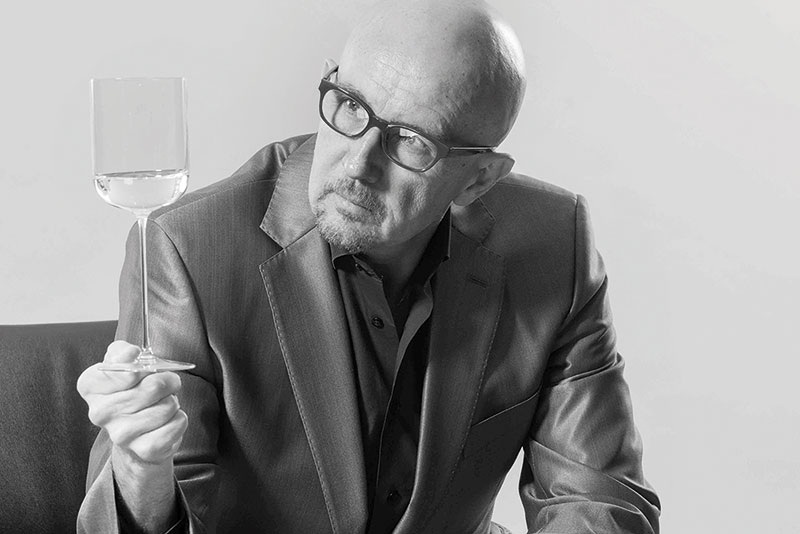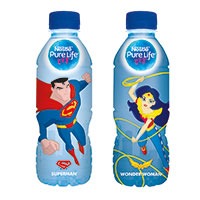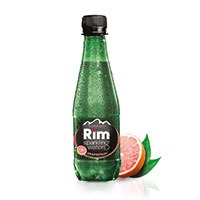As consumers look for products that offer more in terms of value than regular refreshments, the perception of drinking water products is changing and influencing the beverage market, especially that of soft drinks. HN spoke to Dr. Michael Mascha, water sommelier, for more insight
The 5th Fine Waters Summit 2017, the biggest event of its kind, which took place in Guangzhou, China, had as its overarching theme the ‘premiumization’ of the water segment. Presentations by international experts focused on the current global status of this type of water, as well as the need for the hospitality industry to begin offering water menu solutions and educating consumers.
Using a satellite phone while traveling through one of China’s rainforests to connect to our HN office in Beirut, Dr. Michael Mascha, water sommelier and the creator/publisher of FineWaters, a website portal that is the definitive voice for water connoisseurs, explained that tap water is for hydration, while premium bottled water deserves a place at the table in an epicurean context.
How would you describe the global bottled water industry?
The industry is experiencing a big upswing. In the US, the sale of water has overtaken soda. This indicates that consumers are focusing on water as a healthy option. What is exciting for me and Martin Riese (America’s first water sommelier), who is a good friend, is that the premium bottled water sector is experiencing the biggest growth within that industry. People are paying closer attention to where their water is coming from and we are working on raising awareness on all levels in that respect.
Which markets are you interested in and why?
I have been roaming in China for a while, so that should be one clear indication. It is a very interesting market at the moment; one which everyone wants to be in, due to its size and the growing trend of consuming premium water. South America is another really great place for sourcing premium bottled water, found in some remote and underdeveloped areas that are showing great potential.
What are the challenges when it comes to points of entry into those markets?
Irrespective of how good a certain premium water brand is, education will remain central to its adoption. Put simply, people in the US still think that all bottled water is the same. Ironically, around 40 percent of bottled water sold is actually purified tap water, so there is a learning curve, which equally applies to the choices of foods or wines you consume.
What markets are premium water brands thirsting to break into?
Every brand I talk to wants to be in two places: China and the Middle East. However, these markets are tightly regulated, making it almost impossible for smaller brands to establish a foothold. The problem is further compounded for some of these brands by the long wait times and the cost associated with doing business there, making market entry unaffordable.
Does the same apply to bigger brands?
No, because shelling out USD 100,000 to setup a distribution system, irrespective of how much time it takes, is not a big deal for these brands. On the other hand, if the smaller companies cannot have a fast return on their investment, then it will not be financially feasible for them to even try. Therefore, you can only have the smaller brands if you have an open market system, whereas in closed markets, you get mainstream, rather than premium brands.
What are the strategies used by premium water brands to attract consumers?
Aside from the source of the water, the next frontier will see water heavily paired with food. To help promote that initiative, we held the FineWaters International Taste & Design Awards in Ecuador. The event hosted the country’s most reputed chef, Juan Carlos Ordoñez, who created a five-course menu with five water sommeliers pairing the dishes prepared. Those present were blown away by the effect that different waters had on the food. Even the chef realized that people enjoying his food were not distracted by the wine. This confirmed to us that the future proponents of the trend will be the chefs and I would not be surprised if, in the near future, upscale restaurants offer a set-course menu paired with water, rather than wine.
What other sectors will the water industry be branching into?
When you make chocolate ganache, you add milk, which clouds the chocolate’s taste. Chocolatier Peter Sweningson had the idea of replacing milk with water and once you taste his creations, it’s like tasting chocolate for the very first time. The result drove him to further experiment, using the same chocolate, but different waters. In other words, the water industry is expanding and entering other sectors and this will result in a number of surprising products in the coming years.



















